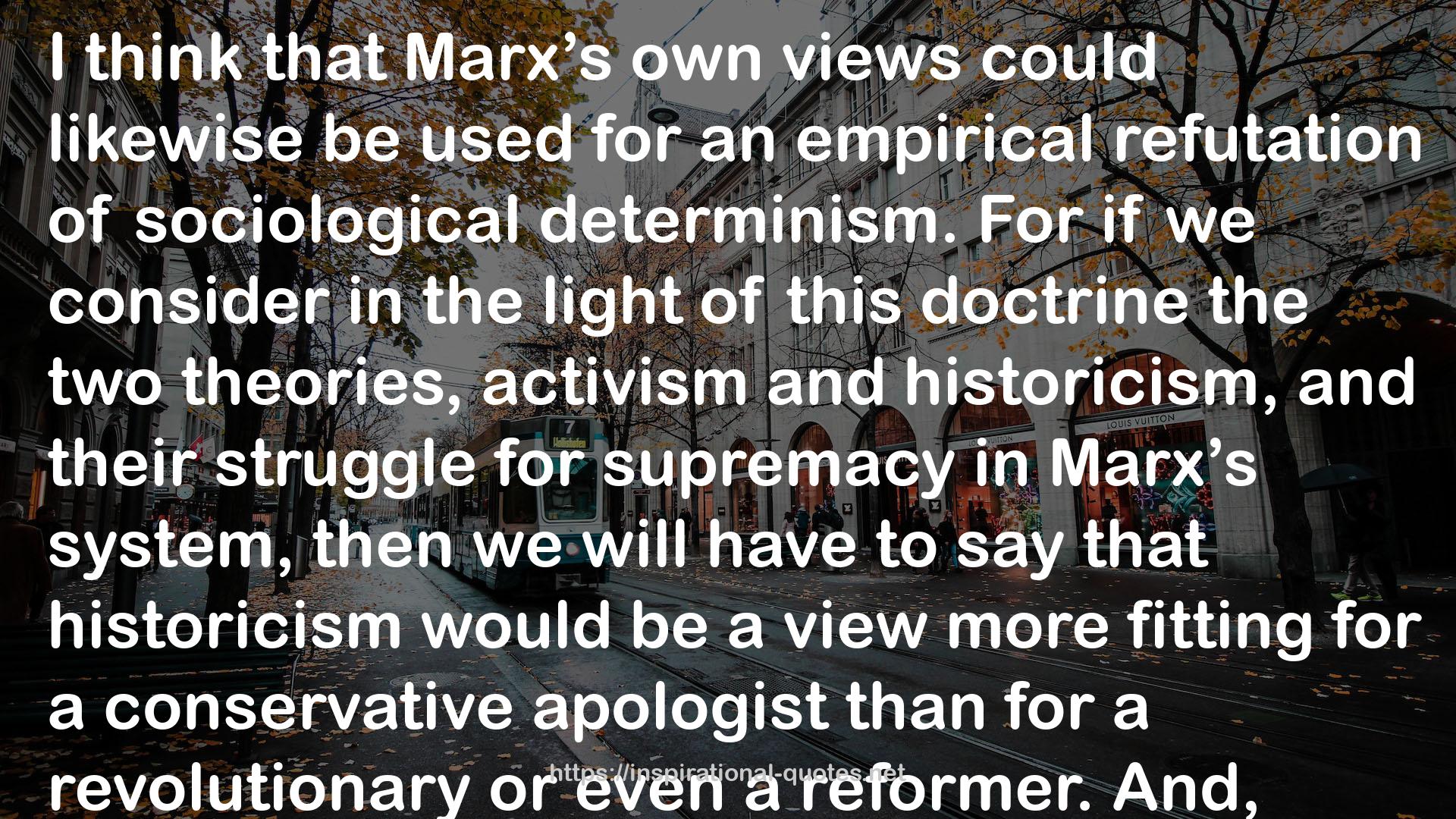" I think that Marx’s own views could likewise be used for an empirical refutation of sociological determinism. For if we consider in the light of this doctrine the two theories, activism and historicism, and their struggle for supremacy in Marx’s system, then we will have to say that historicism would be a view more fitting for a conservative apologist than for a revolutionary or even a reformer. And, indeed, historicism was used by Hegel with that tendency. The fact that Marx not only took it over from Hegel, but in the end permitted it to oust his own activism, may thus show that the side a man takes in the social struggle need not always determine his intellectual decisions. These may be determined, as in Marx’s case, not so much by the true interest of the class he supported as by accidental factors, such as the influence of a predecessor, or perhaps by shortsightedness. Thus in this case, sociologism may further our understanding of Hegel, but the example of Marx himself exposes it as an unjustified generalization. A similar case is Marx’s underrating of the significance of his own moral ideas; for it cannot be doubted that the secret of his religious influence was in its moral appeal, that his criticism of capitalism was effective mainly as a moral criticism. Marx showed that a social system can as such be unjust; that if the system is bad, then all the righteousness of the individuals who profit from it is a mere sham righteousness, is mere hypocrisy. For our responsibility extends to the system, to the institutions which we allow to persist. It is this moral radicalism of Marx which explains his influence; and that is a hopeful fact in itself. This moral radicalism is still alive. It is our task to keep it alive, to prevent it from going the way which his political radicalism will have to go. ‘Scientific’ Marxism is dead. Its feeling of social responsibility and its love for freedom must survive. "
― Karl Popper , The Open Society and Its Enemies
